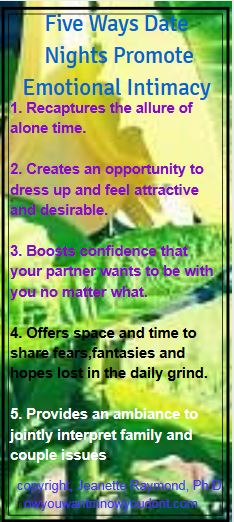How to Get Close Again Without Using Threats
INSIGHT AND ADVICE ON THE FEAR OF EMOTIONAL INTIMACY AND HOW TO MANAGE IT
.jpg)
You are longing for your partner to notice that you feel left out and useless in the relationship.
But your partner only sees what they do for you and how little you reciprocate.
You become morose to get your partner to worry, but all you get is words of disapproval that you aren't pulling your weight.
Your partner feels burdened and gets upset at you.
Both of you have hit a wall.
Neither of you can see a way through it or over it.
You both want to hold hands again and remove that wall separating you, but there is no closeness
You can't function properly while you are feeling so unimportant
You keep banging your head against the wall hoping it will bleed and make your partner feel guilty, bash down the wall and tend to you.
Your partner is finding it increasingly challenging to maintain juggle all the balls in the air, fantasizing about being emotionally intimate with you
Both of you get crabby and irritable without the soothing experience of emotional closeness
You can't take the pressure any more and make a threat – "I'm not going to your brother's party this weekend!"
Your partner counters with another threat, " I'm taking the car for a week when I go camping with my parents"
Overwhelmed with a sense of abandonment you and your partner make the wall higher and deeper.
More threats are needed to force one or other to climb over the top, or dig a tunnel underneath.
Because what you are both aching for is the comfort of emotional intimacy without the fear that you are giving up ground, or losing face.
In this video I tell the story of Tasha and Johnie who felt they were up against a wall that just kept getting taller and wider. I describe how I helped them in couples therapy to take the risk of removing a brick here and there to make a tentative connection through mutual understanding.
They found their way back to an emotionally close place where threats were no longer the weapon of choice.
You can do it too, if you watch and use the same strategies.
copyright, Jeanette Raymond, Ph.D. 2015
" Thanks a million for writing this book. To my knowledge, it is the best book on the market on this subject. No other book I have read gives you an inside into the dynamics both partners apply in a relationship where commitment fear is at play. Anyone in such a relationship knows about the trauma, pain and hopelessness. This book showed me where I go wrong and what I do to trigger my partner’s behaviour. It gave me a real inside in what my partner feels in moments when everything escalates and how I contribute to it. It also gave me extremely good guidance what I can do to break this unhealthy cycle. What I liked most is that this book does not stigmatise people with this problem and it does not tell you to leave your partner – like most books on this subject do. The experience of Dr Raymond really shows – this book was written to help you; and that is exactly what it did for me. I am so glad this book exists. " Regina E.
You might also like:
Three ways to control rage when you feel abandoned
Is sex after a fight your way of avoiding emotional intimacy
Pressing the refresh button on a crumbling marriage
Disclaimer: this article is for informational and educative purposes only. Dr. Raymond is not responsible for any reactions you may have when reading the content or using the suggestions therein. Interacting with this material does not constitute a therapeutic relationship with Dr. Jeanette Raymond

.jpg)
.jpg)
.jpg)

.png)



.jpg)
.jpg)
.jpg)
.jpg)
.jpg)

.jpg)



.jpg)
.jpg)

.jpg)
.jpg)
.jpg)
.jpg)





